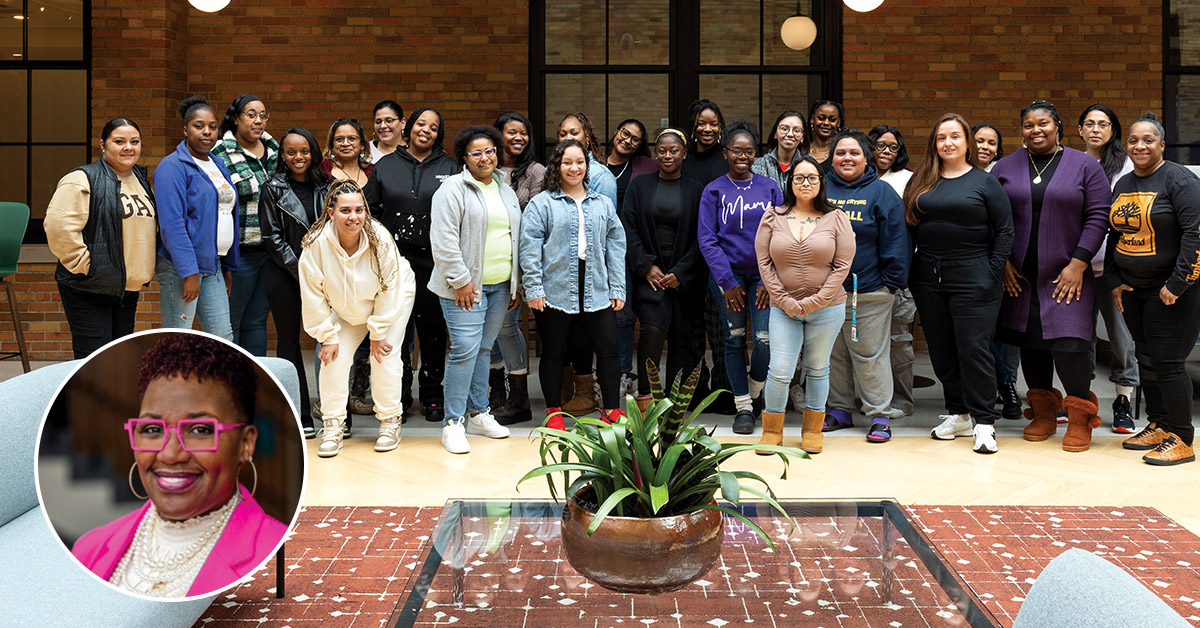When a group of mothers I have the privilege of working with through the Steelcase Foundation Investment in Families Initiative chose to call themselves Family Leaders, it was more than a name. It was an act of narrative justice.
Too often, these women—Black, Brown, and system-impacted—are flattened into a single, stigmatizing label: single mom. In public discourse, that phrase carries a toxic undercurrent: irresponsible, uncaring, morally suspect, poor. It erases their giftedness, complexity, leadership. It strips them of dignity and agency.
These women are not "single moms." They are mothers. Leaders. Community builders. Holders of legacies of love, creativity, and tenacity.
My recent work with them has centered on narrative justice. Narrative justice helps us understand how the stories that circulate about us—especially through media, institutions, policy and culture—are connected to broader systems of power and inequity. It helps us reclaim the pen and author a more nuanced, complete story.
Language and discourse are not neutral. They shape how people are represented, understood, and treated. They also shape how people understand themselves, particularly as these narratives are repeated and become understood as truth. The narratives about Black and Brown mothers in this country are deeply entangled with racism, patriarchy, and classism. These are tools of control—what scholars call symbolic violence—that reinforce oppression even when no overt action is taken.
The women I work with know this intimately. They have had their worth, competence and character questioned in doctors' offices, and by educators and policymakers. They have been told, in countless ways: "You are not enough."
But now, they ask new questions: How did my story come to be? Who am I? Whose narratives have I internalized? What stories limit or empower me?
Together, we began the work of reclaiming and reframing. This isn't about denying hardship—it's about telling fuller, more honest stories that honor complexity and center cultural assets, love, joy and leadership. Stories authored by the women themselves.
These Family Leaders meet regularly in person and connect virtually almost daily to engage in structured dialogue, peer learning, and skill-building workshops. Beyond the powerful connections built through the cohort, participants also receive support that addresses their holistic well-being—emotional, social, and even financial—including access to resources and direct assistance. These intentional supports are critical in helping participants reclaim their narratives and build futures rooted in joy, leadership, and self-determination.
This process draws from the philosophy embedded in my Radiant & Rising work: the deliberate practice of rejecting harmful narratives and replacing them with those that cultivate self-love, peace, and joy. As one mother said: "I'm done apologizing for who I am. My story is mine to tell."
But narrative justice isn't just an individual practice. It's a collective responsibility. Systems—including media, nonprofits, and public institutions—must interrogate the ways they perpetuate reproductive discourse: dominant frameworks that maintain stereotypes and justify harmful narratives and inequity. They must move toward transformative discourse: ways of seeing uncomfortable truths, and fostering curiosity and empathy.
When a story features "another single mom" without honoring her leadership, that is reproductive discourse. When a system asks, "What are your deficits or problems?" instead of "What are your strengths and aspirations?" that is reproductive discourse. These aren't minor matters of language—they're matters of justice.
This Initiative is about more than supporting mothers in reclaiming their stories. It's about shifting how entire systems see them and shape public perception and policy. This 10-year endeavor seeks to transform how systems understand and represent families. We must all take up this work. Consider:
- What narratives do I hold about mothers who don't fit dominant ideals of family or success?
- Where did these narratives come from and why?
- What stories can I choose to amplify that honor the full humanity and leadership of mothers?
Narrative justice demands that we move beyond charity to solidarity; pity to partnership. It requires that we listen deeply, challenge default assumptions, and embrace the complexity and beauty of every story.
This work underscores the importance of narrative justice—not only for Family Leaders, but for those who wield narratives across systems. With nine years remaining, this initiative will continue to pave the way, reclaim narratives and reshape the stories that define what family leadership truly looks like.
These Family Leaders are reclaiming their voices. And in doing so, they invite us all to examine the stories we tell—and to choose ones that honor the fullness of every life.
Nadia Brigham, Ph.D. is principal of Brigham Consulting, LLC with over 20 years of experience advancing racial equity, leadership, and community engagement in philanthropy and youth-serving and grassroots organizations. Throughout her career, Nadia has focused on racial equity, leadership development and community engagement for education justice, health equity, and family economic security. She's a strategist focused on moving leaders and organizations from awareness and knowledge acquisition to agency and action toward more equitable outcomes. Not secondarily, supporting leaders in examining and interrogating manifestations of internalized anti-Blackness and superiority and creating pathways to healing is critical to her work.
This article originally appeared in the Aug/Sept '25 issue of West Michigan Woman.



